
Code: 25137324
Plant Responses to Nanomaterials
by Vijay Pratap Singh, Samiksha Singh, Sheo Mohan Prasad, Devendra Kumar Chauhan, Durgesh Kumar Tripathi
The population of the world continues to increase at an alarming rate. The trouble linked with overpopulation ranges from food and water scarcity to inadequacy of space for organisms. Overpopulation is also linked with several oth ... more
- Language:
 English
English - Binding: Hardback
- Number of pages: 334
Publisher: Springer Nature Switzerland AG, 2021
- More about this

197.04 €

Low in stock at our supplier
Shipping in 13 - 16 days
Potřebujete více kusů?Máte-li zájem o více kusů, prověřte, prosím, nejprve dostupnost titulu na naši zákaznické podpoře.
Add to wishlist
Give this book as a present today
- Order book and choose Gift Order.
- We will send you book gift voucher at once. You can give it out to anyone.
- Book will be send to donee, nothing more to care about.
More about Plant Responses to Nanomaterials
You get 494 loyalty points
 Book synopsis
Book synopsis
The population of the world continues to increase at an alarming rate. The trouble linked with overpopulation ranges from food and water scarcity to inadequacy of space for organisms. Overpopulation is also linked with several other demographic hazards, for instance, population blooming will not only result in exhaustion of natural repositories, but it will also induce intense pressure on the world economy. Today nanotechnology is often discussed as a key discipline of research but it has positive and negative aspects. Also, due to industrialization and ever-increasing population, nano-pollution has been an emerging topic among scientists for investigation and debate. Nanotechnology measures any substance on a macromolecular scale, molecular scale, and even atomic scale. More importantly, nanotechnology deals with the manipulation and control of any matter at the dimension of a single nanometer. Nanotechnology and nanoparticles (NPs) play important roles in sustainable development and environmental challenges as well. NPs possess both harmful and beneficial effects on the environment and its harboring components, such as microbes, plants, and humans. There are many beneficial impacts exerted by nanoparticles, however, including their role in the management of waste water and soil treatment, cosmetics, food packaging, agriculture, biomedicines, pharmaceuticals, renewable energies, and environmental remedies. Conversely, NPs also show some toxic effects on microbes, plants, as well as human beings. It has been reported that use of nanotechnological products leads to the more accumulation of NPs in soil and aquatic ecosystems, which may be detrimental for living organisms. Further, toxic effects of NPs on microbes, invertebrates, and aquatic organisms including algae, has been measured. Scientists have also reported on the negative impact of NPs on plants by discussing the delivery of NPs in plants. Additionally, scientists have also showed that NPs interact with plant cells, which results in alterations in growth, biological function, gene expression, and development. Thus, there has been much investigated and reported on NPs and plant interactions in the last decade. This book discusses the most recent work on NPs and plant interaction, which should be useful for scientists working in nanotechnology across a wide variety of disciplines.
 Book details
Book details
Book category Knihy po anglicky Mathematics & science Biology, life sciences Botany & plant sciences
197.04 €
- Full title: Plant Responses to Nanomaterials
- Subtitle: Recent Interventions, and Physiological and Biochemical Responses
- Author: Vijay Pratap Singh, Samiksha Singh, Sheo Mohan Prasad, Devendra Kumar Chauhan, Durgesh Kumar Tripathi
- Language:
 English
English - Binding: Hardback
- Number of pages: 334
- EAN: 9783030367398
- ID: 25137324
- Publisher: Springer Nature Switzerland AG
- Weight: 688 g
- Dimensions: 23 × 155 × 24 mm
- Published: 2021
Trending among others
-
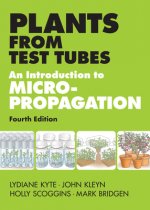
Plants from Test Tubes : An Introduction to Micropropagation
26.12 € -35 % -

Maria Sibylla Merian
19.97 € -19 % -

Finding the Mother Tree
12.80 € -23 % -

Tree Ferns
19.97 € -12 % -

Sexual Reproduction in Higher Plants
240.53 € -

Teaming with Nutrients
21.08 € -27 % -

Plant Pathology
89.79 € -1 % -

Plant Systematics
101.29 € -1 % -

Succulent Flora of Southern Africa
23.20 € -16 % -

Native American Ethnobotany
61.64 € -22 % -
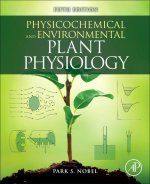
Physicochemical and Environmental Plant Physiology
105.83 € -6 % -

Plant Pathology and Plant Diseases
64.06 € -13 % -

Raven Biology of Plants
98.87 € -

Orchids of Tropical America
23.20 € -24 % -

Rare and Exotic Orchids
50.74 € -9 % -

Applied Tree Biology
93.32 € -

Hartmann & Kester's Plant Propagation: Principles and Practices
96.85 € -
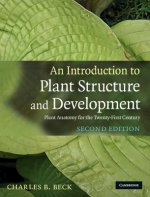
Introduction to Plant Structure and Development
91.30 € -
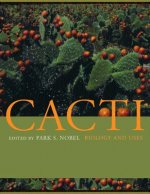
Cacti
90.80 € -

Illustrated Encyclopedia of Clematis
36.21 € -12 % -

Flora of North America
110.88 € -

Conservation Methods for Terrestrial Orchids
77.58 € -

Plants and Microclimate
70.62 € -

Arctic Plants of Svalbard
40.85 € -18 % -

Bogs & Fens - A Guide to the Peatland Plants of the Northeastern United States and Adjacent Canada
20.88 € -19 % -
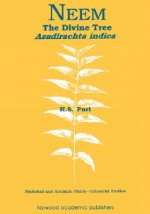
Neem
266.86 € -

In Praise of Plants
22.49 € -12 % -

From Plant Traits to Vegetation Structure
77.58 € -

RSPB Nature Tracker's Handbook
15.23 € -28 % -

RHS Genealogy for Gardeners
20.27 € -28 % -

Comfortably Unaware
13.41 € -16 % -

Darwin's Most Wonderful Plants
10.58 € -18 % -

Metamorphosis of Plants
28.75 € -18 % -

Plant Behaviour and Intelligence
77.28 € -1 % -

Plant Ecology
90.60 € -4 % -

Brilliant Green
14.62 € -38 % -

Flowers of Greece and the Balkans
104.62 € -

Big, Bad Book of Botany
13.31 € -28 % -

Animal, Vegetable, Miracle
12.90 € -25 % -
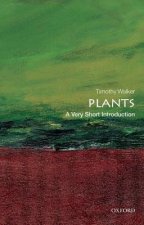
Plants: A Very Short Introduction
9.27 € -28 % -

Alexander von Humboldt
77.18 € -
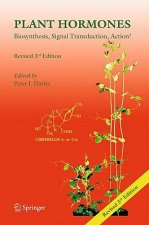
Plant Hormones
314.28 € -3 % -

Tropical Fruits and Other Edible Plants of the World
49.13 € -

Flora of Madeira
140.14 € -

Plant Biology
96.04 € -

What a Plant Knows
17.75 € -6 % -

Atlas of Poetic Botany
22.59 € -12 % -

Handbook of the New Zealand Flora
66.38 € -

Textbook of Pollen Analysis
76.97 €
Osobný odber Bratislava a 2642 dalších
Copyright ©2008-24 najlacnejsie-knihy.sk Všetky práva vyhradenéSúkromieCookies


 21 miliónov titulov
21 miliónov titulov Vrátenie do mesiaca
Vrátenie do mesiaca 02/210 210 99 (8-15.30h)
02/210 210 99 (8-15.30h)